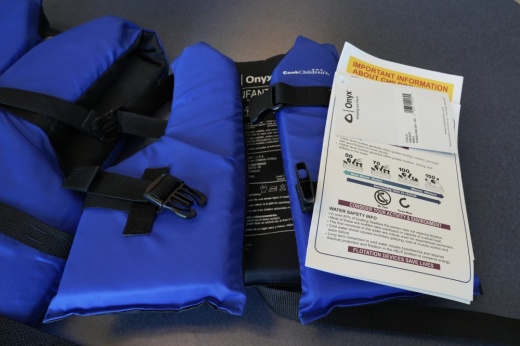Mitchell spoke with Community Impact about practicing water safety during the summer and with Fourth of July celebrations coming up. This interview has been edited for length and clarity.
Why did you become the child safety and injury prevention program coordinator for Cook Children’s Center for Community Health?
I really enjoy teaching, so being able to teach children and adults alike is very valuable and rewarding, especially when it comes to making sure we're keeping kids out of the emergency department and injury-free. So, it was an easy decision for me.
Where and how do most drownings occur?
Drownings occur on all kinds of water. They occur mostly during unplanned or planned swim times. As far as what we're treating at Cook Children's, we're seeing a majority of our drowning events mostly through pools and spas.
How does Cook Children's work to prevent drowning?
We’re very fortunate because Cook Children's is very invested in preventative work. We have a whole department that's committed to going out and either directly educating the parents and caregivers, or we partner with lots of different organizations and advocates for injury prevention, and they educate the families directly that way.
Could you expand more on the Loaner Life Jacket Program?
Our Loaner Life Jacket Program began almost 10 years ago. We have over 60 life jacket stations that we support, some of [which] Cook Children built. That means we've designed them and collaborated with our construction partner to put those kits together. And then some of those are pre-existing loaner stations out in the community that we've adopted. That means that we provide the life jackets for those stations. Our partners are the lake authorities that are the boots on the ground. They are the ones that keep an eye on those stations to make sure they stay stocked. If there's any damaged life jackets, those are removed. If there's damage to any of our Cook Children's stations, then we address that [to] make sure they stay refreshed for the public.
Why is water safety important, specifically in Texas?
Water safety is important everywhere but in Texas, it stays warm for a majority of the year, being a southern state. People are accessing water, either on a boat or they're going out to the river or they have a backyard pool. We really need to be thinking [about] how we can provide resources to families to keep their kids safe.
How can families stay safe around the water this summer?
We want to make sure that we're always designating an assigned adult water watcher. Whether they're going to the community pool or their own pool, they always have someone that is designated to be nondistracted and watch kids while they swim. Then, parents need to talk about their child's swim ability with whomever they're dropping their child off with. If they're going to camp, for example, or if they are going to a babysitter's house for the day, making sure that that person knows what their child's swim capacity is. Communication is really important.
What are some water safety tips specifically for the Fourth of July?
[For the] Fourth of July, most people are cooking out by the pool, they're going to the lake, they're enjoying the fireworks, and just doing all kinds of things that are outdoors. If they're in a natural body of water, they always [have to be] wearing a life jacket. Especially if they're younger kids, we want to keep that life jacket on them at all times because they may run off and decide they're not done swimming yet. They should have a flotation device on, ensuring that it's U.S. Coast Guard approved.




